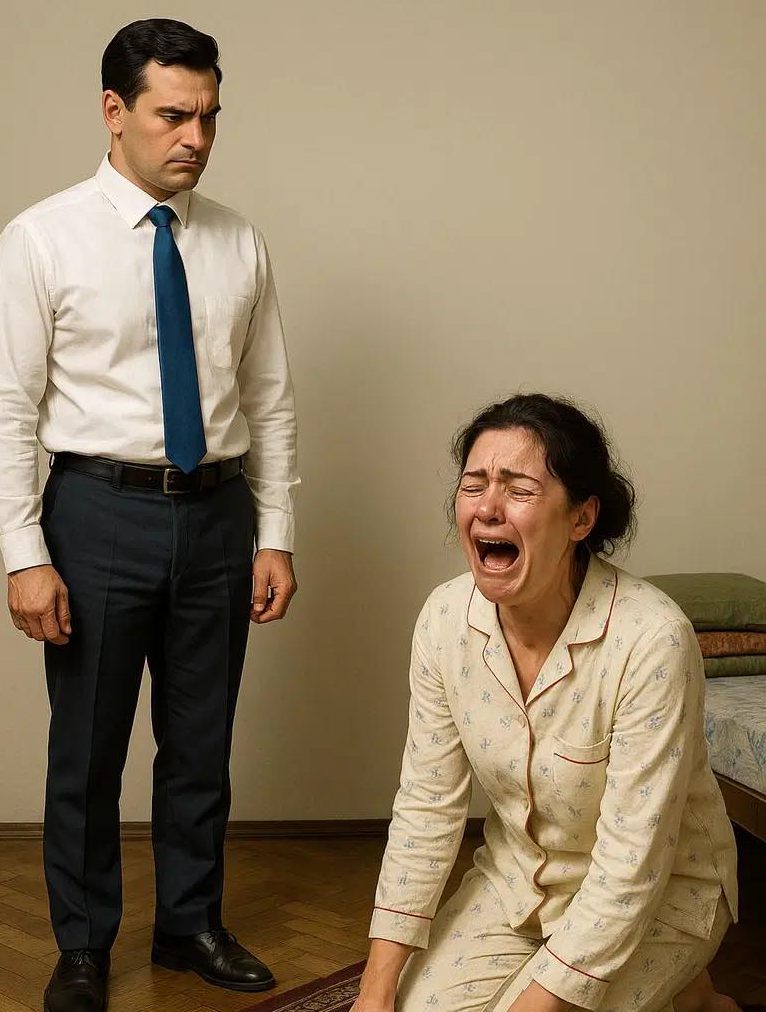For five years, I was someone’s wife but never truly someone’s partner. My husband’s name sat on my documents, his presence filled the house, but his heart—if it was ever mine—had long ago slipped into silence.
He wasn’t cruel in the traditional sense. No yelling, no blows, no smashed dishes. His cruelty was subtler: the clipped answers, the indifference, the way his eyes skimmed over me as though I were just another piece of furniture in his parents’ home.
I woke each morning before the roosters crowed, lit the stove, cooked, washed, ironed, swept. By evening I sat in the kitchen, waiting for his footsteps, hoping for warmth. But every night I received the same phrase tossed carelessly my way: “I’ve already eaten.”
I asked myself often—is this marriage, or just tenancy under the same roof?
The Divorce
One evening he arrived with a look I couldn’t decipher—anger, boredom, maybe relief. He set papers on the table.
“Sign,” he said flatly. “No point wasting either of our time.”
My fingers trembled around the pen. The past replayed in brutal fragments: nights of pain when I suffered silently through stomach cramps, the countless dinners untouched, the hours of silence pressing on my chest. I scrawled my name across the page.
It felt less like an ending and more like being erased.
I packed quickly. There wasn’t much to take. A few clothes, my toiletries, and an old pillow that had followed me from my mother’s house to college, and then into this loveless marriage. Its cover was faded, its seams frayed, but without it, I struggled to sleep.
As I lifted my suitcase, he picked up the pillow, smirk tugging at his mouth, and tossed it at me.
“Take it. Wash it. Probably falling apart by now.”
The sarcasm cut sharper than if he had shouted.
The Rented Room
The boarding room I found that evening smelled of dust and fresh paint. I dropped my suitcase, collapsed onto the narrow bed, and stared at the pillow he had thrown.
It looked pitiful—yellowed stains, fabric thin with age. His mocking words echoed: falling apart.
I decided to at least wash it, to begin fresh with something clean. Sliding the zipper open, I felt the stuffing shift oddly beneath my fingers. Something hard resisted my touch.
Curiosity prickled. I dug inside. My hand closed on paper—stacks of it, folded, pressed flat beneath years of cotton. My breath caught. I pulled them free.
The Hidden Letters
They weren’t his. They were mine.
Letters I had written to my mother during my first year of college—long, rambling accounts of city life, fears, and homesickness. Letters I never mailed because stamps cost more than I could spare. I had tucked them under my pillow for comfort, then forgotten them in the rush of exams, part-time jobs, and later, marriage.
But here they were. Preserved.
Not just preserved—some were unfolded, the creases worn soft, as if someone had read them many times. My heart pounded.
Inside one envelope was a photograph: me, nineteen, sitting in my mother’s garden, hair pulled back, face bright with dreams. I had never put that photo in the pillow.
On another scrap of paper, written in a hand that wasn’t mine, were words simple and raw:
“I’m sorry I don’t know how to speak. But I read your letters when you sleep. You dream of being loved. I wish I knew how.”
I froze. The handwriting was his.
The Realization
All these years, I thought he was indifferent. Yet he had found the letters, tucked them back, preserved them in the very pillow he mocked. He had seen my loneliness, even if he never admitted it aloud.
Why hide it? Why never say a word? Perhaps pride. Perhaps fear. Perhaps he had been raised in a house where tenderness was weakness.
But the letters, the photo, the scribbled confession—they painted a picture of a man who cared, silently, clumsily, tragically.
Tears blurred my vision. Not because I wanted him back—I didn’t. The damage was too deep, the silence too vast. But because I finally understood: his sarcasm wasn’t absence of feeling. It was the only language of love he knew, buried under layers of pride and silence.
The Choice
I placed the letters back inside, smoothing the cotton over them. The pillow was old, fragile, but suddenly it felt like the most precious thing I owned.
That night, for the first time since leaving, I slept soundly. Not because I forgave him, but because I forgave myself—for thinking I had been invisible. I wasn’t invisible. He had seen me, even if imperfectly.
The next morning, I carried the pillow to the laundromat. The attendant gave me a quizzical look as I clutched it protectively. I smiled faintly. She didn’t know the secret stitched inside.
Epilogue
Months passed. I built a new life—small apartment, steady work, evenings of my own choosing. Yet every night, when I lay my head on that pillow, I felt the weight of the letters beneath.
They reminded me that love comes in broken dialects, that sometimes silence hides longing, and that even the coldest eyes can see more than they admit.
One day, maybe, I’ll burn those letters as a farewell. But not yet. For now, they remain—a reminder that I was loved, awkwardly, insufficiently, but undeniably.
And whenever I close my eyes, I hear the faintest echo of his unspoken words: “I wish I knew how.”
